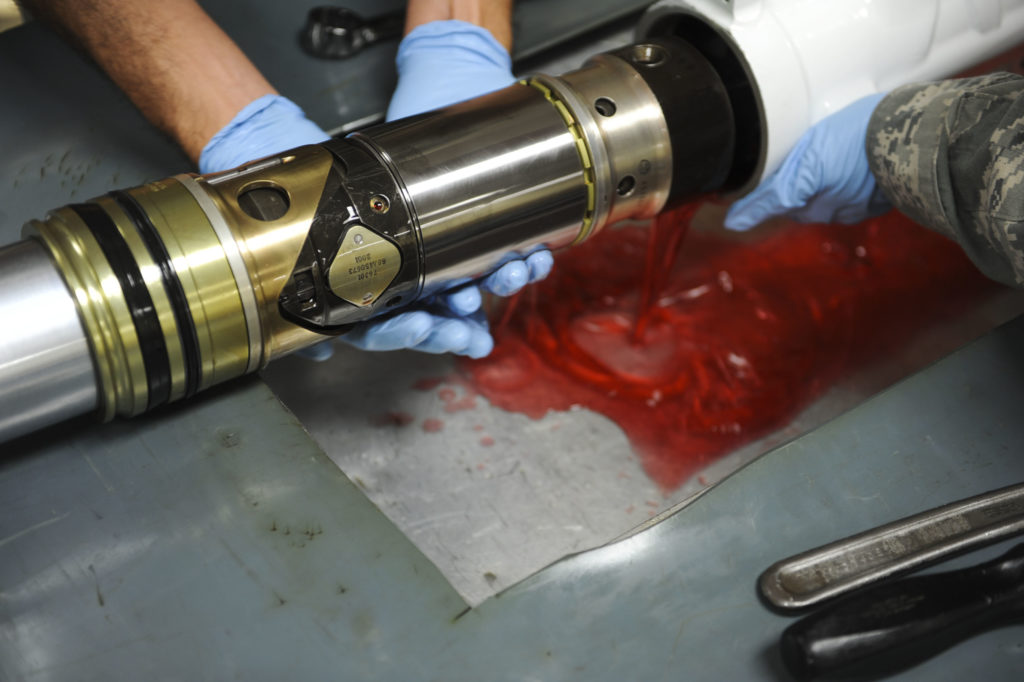How To Avoid Hydraulic Fluid Contamination
Hydraulic fluid contamination can create some major problems for your operation and machinery! It’s important to keep all of your machines and equipment running as smoothly as possible to avoid any unnecessary repair costs as well as to keep your machines running as long as possible. Hydraulic fluid contamination is one of the most common reasons for hydraulic systems to fail or lose effectiveness although you might not always realize it. Contamination can cause a multitude of problems for your equipment and machinery including leaks, sticky parts, corrosion and more. It’s obvious that machine and equipment owners are going to want to avoid hydraulic fluid contamination at all costs right, but how? What are some of the preventive measures you can take to keep your machinery and equipment running as smoothly as possible all while avoiding hydraulic fluid contamination?
First off, lets discuss what are the various contaminations that are most likely when it comes to your equipment’s hydraulic fluid. When you think about contaminants, its easy to jump to the thought of dirt, dust, flakes of metal, or other things that fly around in the use of machinery and equipment, and those things definitely will cause trouble if they get in your hydraulic fluid, but another lesser known contaminant is actually water! When water gets mixed in with your hydraulic fluid, the results can be devastating to your operation. Water can result in the corrosion of your equipment and hydraulics. Although contamination is sometimes unavoidable, let’s explore the different ways that you can protect your equipment from both particle contamination as well as fluid and water contamination.
Hydraulic Fluid 101: How To Avoid Hydraulic Fluid Contamination
Proper Fluid Care and Storage
Proper fluid care and storage is going to be one of the biggest ways that you can avoid hydraulic fluid contamination when it comes to your equipment and machinery. This ranges everything from proper storing containers, proper handling, as well as selecting the correct fluid for your particular equipment. All hydraulic fluids should be kept in completely sealed containers until they are ready to be used and any container of hydraulic fluid should be meticulously cared for – be sure to research your specific hydraulic fluid to make sure that you know exactly what measures should be taken when it comes to storage and handling. Certain hydraulic fluids need to be stored in a completely dry area because they will absorb moisture in a humid environment, other fluids are more sensitive to temperature changes and should be handled accordingly. Avoiding contamination in your equipment’s hydraulic fluid begins from the time you buy it, till you dispose of the empty container.

Routine and Preventive Maintenance
Routine Maintenance is an important and simple way that you can avoid hydraulic fluid contamination. Some contamination is due to build up of residue or simply the overuse of fluid way past the point of when it should have been serviced. Set a schedule for your hydraulic equipment and machinery so that you remember to get it serviced by a professional routinely. This will make it easier to catch any build up or residue before it becomes a bigger issue involved more down time, and seriously affected equipment! To read more about the different benefits that you can experience through preventive maintenance, click here.
Although sometimes hydraulic fluid contamination is inevitable, there are certainly preventive measures that can be taken to protect your hydraulic equipment. We hope that this blog was useful as you think about how you can better care for your hydraulic machinery. If you are looking to have your hydraulic equipment serviced, please contact us today. We would love to talk to you about how we might be able to help.


